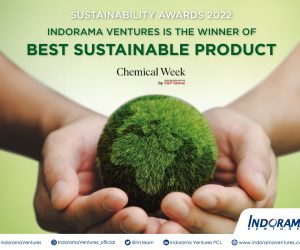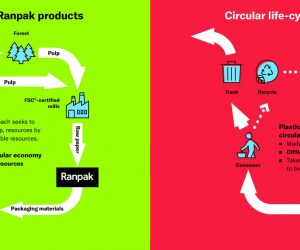

Don’t forget about plastic, the fate of the climate movement depends on it
COP summits are an annual event and COP26 is Britain’s opportunity to demonstrate its ability to lead and galvanise the world in the existential battle against climate change.
The Paris Agreement adopted at COP21 in 2015 was hailed as a breakthrough. But no meaningful progress has been made in the 4 COP summits since Paris despite the rapidly deteriorating climate emergency. The danger is that COP26 may prove to be an equally ineffective talking shop – full of good intentions and long term aspirations, but little tangible action .
At COP26 Britain has the opportunity to lead by example, announce unilateral commitments and initiatives and set the tone and targets that challenge other countries to follow.
COP26 must go beyond dialogue about the macro issue of climate change and look in-depth at the key drivers behind it. Otherwise COP26 risks failing to have the impact Britain intends and its legacy will be a lost opportunity.
Plastic waste, for example, is a huge contributor to the climate crisis. The two issues are intrinsically linked. Production and disposal of plastic massively contributes to emissions, with researchers estimating plastic will pump more than 2.8 billion tonnes of greenhouse gases into the atmosphere by 2050.[i] Meanwhile some 11 million tonnes of plastic waste enter our oceans each year.[ii] Globally 32 percent of plastic ends its life as environmental litter while a further 40 percent ends in landfill. These are shocking statistics, with increasingly devastating consequences for both our climate and environment.
There is little sign of slowing, never mind reversing this rapid upward trajectory, with plastic pollution in the world’s oceans predicted to double by 2030.[iii]
To date, real action to stop plastic’s impact has failed to manifest itself and despite voluntary pacts and pledges from industry to cut down on single-use plastic, it remains a staple of society. The UK, alongside the US, produces more plastic waste per person than any other major country, and shows no sign of slowing down.[iv] Alarmingly, the WWF predicts a UK plastic waste increase of 20 percent by 2030.[v]
If the Government is serious about combating climate change, and wants COP26 to be a success, it cannot overlook plastic’s contribution and should take meaningful steps to reduce its use. It can start by showing real leadership by imposing its single-use plastics ban on all items where sustainable and viable alternatives are available. Takeaway coffee cups and lids are a case in point.
In the UK we throw away half a million takeaway plastic-coated coffee cups and plastic lids every day, some 2.5 billion each year, with only 1 in 400 ever being recycled.[vi] Consumption is also increasing rapidly, with the WWF forecasting the UK will use 33 percent more cups by 2030. These cups and lids will generate the same carbon emissions each year as 33,300 cars.[vii]
Britain can send a message of intent and leadership to the world that will be followed by other countries by announcing a ban on plastic cups, lids and similar items where alternative materials are available. Action must replace words for COP26 to secure a positive legacy and we are to mitigate and tackle the climate emergency we are facing.
The Paris Agreement is symbolic of how a COP summit can bring about positive change. As the 2021 host Britain has both the opportunity and the responsibility to drive action forward by ensuring the world’s leaders focus on actions to tackle all aspects of the climate crisis, not just discuss long-term multilateral aspirations. Meaningful action on plastics from the Government can inspire other countries to do the same, whilst providing them with a roadmap which they can replicate themselves.
With COP26 aiming to seek multilateral agreement on how to tackle climate change at the macro level over the medium to longer term, it is the UK’s role as host and opportunity to demonstrate unilateral leadership with examples of effective micro actions that can be implemented in the short term such as making sure plastic’s role in driving the crisis is tackled quickly and effectively.
Tommy McLoughlin is Founder and CEO of ButterflyCup – an easy to recycle, plastic-free and sustainable beverage cup which eliminates plastic lids and straws. For more information, please visit https://butterflycup.com/





